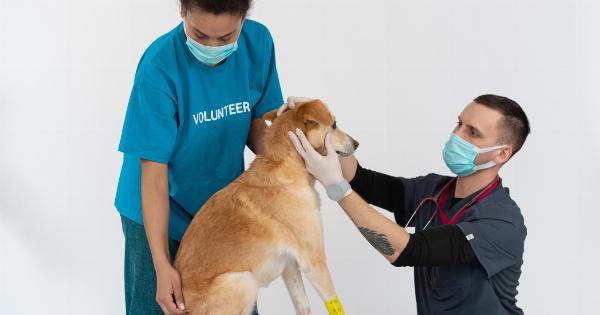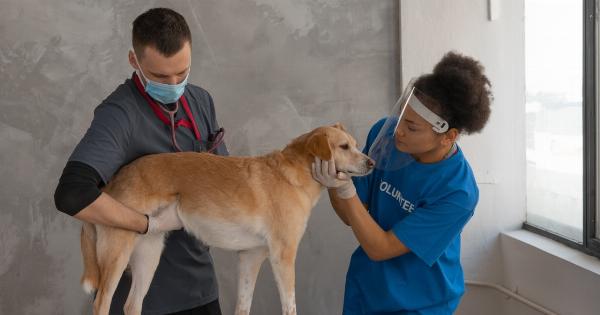When our furry companions start coughing, it can be a cause for concern. Dogs are known for their resilience and being able to tough out various ailments, but a persistent cough should never be ignored.
Behind the scenes of a dog’s cough, there are several possible causes, ranging from mild to severe. Understanding the potential reasons behind a dog’s cough can help pet parents make informed decisions regarding their beloved pets’ health.
1. Kennel Cough
Kennel cough, medically known as infectious tracheobronchitis, is a respiratory infection commonly found in dogs. It is highly contagious and spreads rapidly in places like dog parks, boarding facilities, and grooming salons.
The chief symptom is a persistent, honking cough, much like the sound a goose makes. Kennel cough is generally not a severe condition and often resolves on its own in a couple of weeks.
2. Canine Influenza
Similar to human influenza, canine influenza is a highly contagious respiratory disease that affects dogs. It can cause coughing, sneezing, nasal discharge, and fever. Just like kennel cough, canine influenza spreads quickly among dogs in close contact.
Vaccinations are available to prevent this illness, and prompt veterinary care can help manage the symptoms effectively.
3. Heart Disease
A persistent cough can also indicate an underlying heart condition in dogs. Heart disease can cause fluid to accumulate in the lungs, leading to coughing.
This cough may be accompanied by other symptoms such as fatigue, difficulty breathing, and a bluish tinge to the gums. It is crucial to consult a veterinarian if heart disease is suspected to prevent further complications.
4. Allergies
Allergies can cause dogs to cough due to irritation in their respiratory system. Common allergens include pollen, dust mites, mold spores, and certain foods.
If a dog only coughs during specific seasons or after exposure to particular environments, allergies may be the culprit. Identifying and minimizing the allergens can provide relief to the dog and reduce the likelihood of coughing.
5. Collapsed Trachea
Small breed dogs, such as Chihuahuas and Yorkshire Terriers, are prone to a condition called collapsed trachea. It occurs when the trachea, or windpipe, flattens, making it difficult for the dog to breathe.
Coughing is a common symptom of this condition, often triggered by excitement, exertion, or pressure on the neck. Collapsed trachea can be managed through lifestyle changes, medication, or even surgery.
6. Respiratory Infections
Respiratory infections caused by bacteria or viruses can lead to coughing in dogs. These infections can affect the upper respiratory tract, such as the nose and throat, or involve the lower respiratory passages, including the lungs.
Prompt veterinary attention is necessary to diagnose the specific infection and prescribe appropriate treatment.
7. Foreign Object Inhalation
Dogs are naturally curious and may sniff or ingest objects that can become lodged in their airways. When a foreign object gets stuck, it can cause coughing as the dog tries to dislodge it.
If a persistent cough is accompanied by gagging or retching, there is a possibility that the dog has inhaled a foreign object. Seeking immediate veterinary help is crucial to prevent further complications.
8. Canine Distemper
Canine distemper is a highly contagious viral disease that affects dogs and other wildlife species. It primarily targets the respiratory, gastrointestinal, and nervous systems. Coughing is one of the initial symptoms of this potentially fatal disease.
Vaccination is the best prevention against distemper, and timely medical intervention can help manage the symptoms and increase the chances of recovery.
9. Lung Tumors
Although less common, lung tumors can occur in dogs, especially as they age. These tumors can lead to a persistent cough, often accompanied by other respiratory symptoms such as difficulty breathing and wheezing.
Veterinary evaluation is crucial if lung tumors are suspected, as early detection and intervention can improve the outcome.
10. Chronic Bronchitis
Chronic bronchitis is a long-term inflammation of the bronchial tubes, which carry air to the lungs. It can cause persistent coughing in dogs. This condition is often associated with environmental factors such as smoke, dust, or pollution.
While there is no cure for chronic bronchitis, managing the symptoms through medication and environmental changes can significantly improve a dog’s quality of life.
Conclusion
A dog’s cough can have numerous underlying causes, varying in severity and treatment options.
Identifying the reason behind the cough is essential for effective management and providing the best possible care for our beloved four-legged companions. Seeking veterinary attention and following their advice is crucial to ensure timely diagnosis, appropriate treatment, and a faster recovery.






























